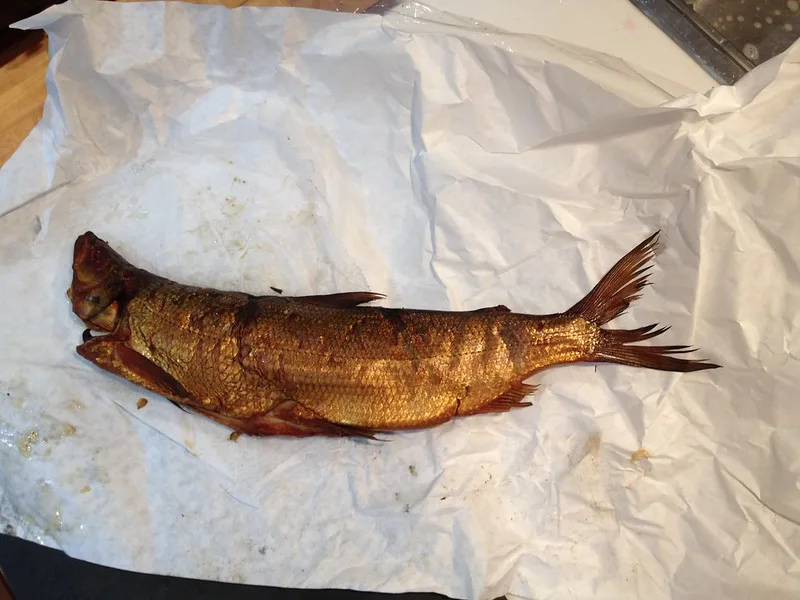
Smoked fish is a staple of Michigander cuisine. (James Sisk via Flickr)
As Michiganders, we put onions on hot dogs, olives on hamburgers, and snack on Polish donuts in February. But have you ever wondered why? In our Michigan Moments: Food series, we’re checking out the history behind iconic Michigan foods and beverages. This is the tenth article of the series. Look for a new one every Wednesday!
MICHIGAN — Though it may come as a surprise to you, food from the Midwest might be considered unusual by our coastal neighbors. Midwestern cooking often combines culinary traditions from our families’ immigrant backgrounds, locally grown and produced ingredients, and the foods of Indigenous tribes. And in Michigan especially, our home cookin’ includes provisions that were concocted, bottled, and packaged by mitten-state entrepreneurs. If you’re curious about the history of some of your favorite foods and beverages, read on to discover how Michigan history creates Michigan culture.
Smoked Whitefish
Though perhaps not as well known as pasties, smoked fish is a staple of Michigan cuisine in Northern Michigan and the Upper Peninsula. The Great Lakes are known for their abundance of fish, especially whitefish. And Michiganders enjoy smoked fish by itself, on bread, as a pâté spread, or even as a dip.
Smoked fish is also arguably the oldest of Michigan’s culinary traditions. Indigenous tribes of the Upper Peninsula have been drying locally-sourced fish over fires since at least the 18th Century. Tribes often traded smoked fish with French and English settlers. And later in the 19th century, Norwegian immigrants in Leland’s Fishtown along the Leelanau Peninsula picked up the tradition—and are keeping it alive today.
Michigan’s most common fish for smoking included lake trout, salmon, chubs, cisco (lake herring), and whitefish. Demand for smoked whitefish skyrocketed when Ashkenazi Jews settled in Detroit, and the whitefish’s harvest season coincided with the Jewish holidays of Rosh Hashanah and Yom Kippur. Smoked fish dip was very similar to the whitefish salad from Jewish delis, and it was also kosher.
Still today, smoked fish is made by soaking the fish in a salt water brine, then smoking it—either hot smoked, which is done at higher temperatures for six to eight hours, or cold smoked, which is done at lower temperatures over several days. The popular cuisine is most commonly found during the summer months in the Upper Peninsula, and, of course, at the shanty community of Fishtown in Leland.
Politics

Michigan lawmakers look to break (another) state funding record for public schools
Democratic lawmakers are hashing out plans to bring state funding for Michigan’s public schools to another new, all-time high—and ensure teachers...

Mundy Twp. project gets state funding in effort to boost local manufacturing
More than $9 million awarded to a planned development project in Genesee County could provide a big boost to the local economy and help create...

It’s official: Your boss has to give you time off to recover from childbirth or get an abortion
Originally published by The 19th In what could be a groundbreaking shift in American workplaces, most employees across the country will now have...
Local News

More Michigan teens could soon take driver’s ed in their own schools
Privatization of driver’s education means that only 38 Michigan high schools offer affordable in-school driving classes for students. New grants...

That one time in Michigan: When we became the Wolverine State
How did Michigan become tied to an animal that's practically nonexistent there? Among the many nicknames that the state of Michigan has, arguably...





